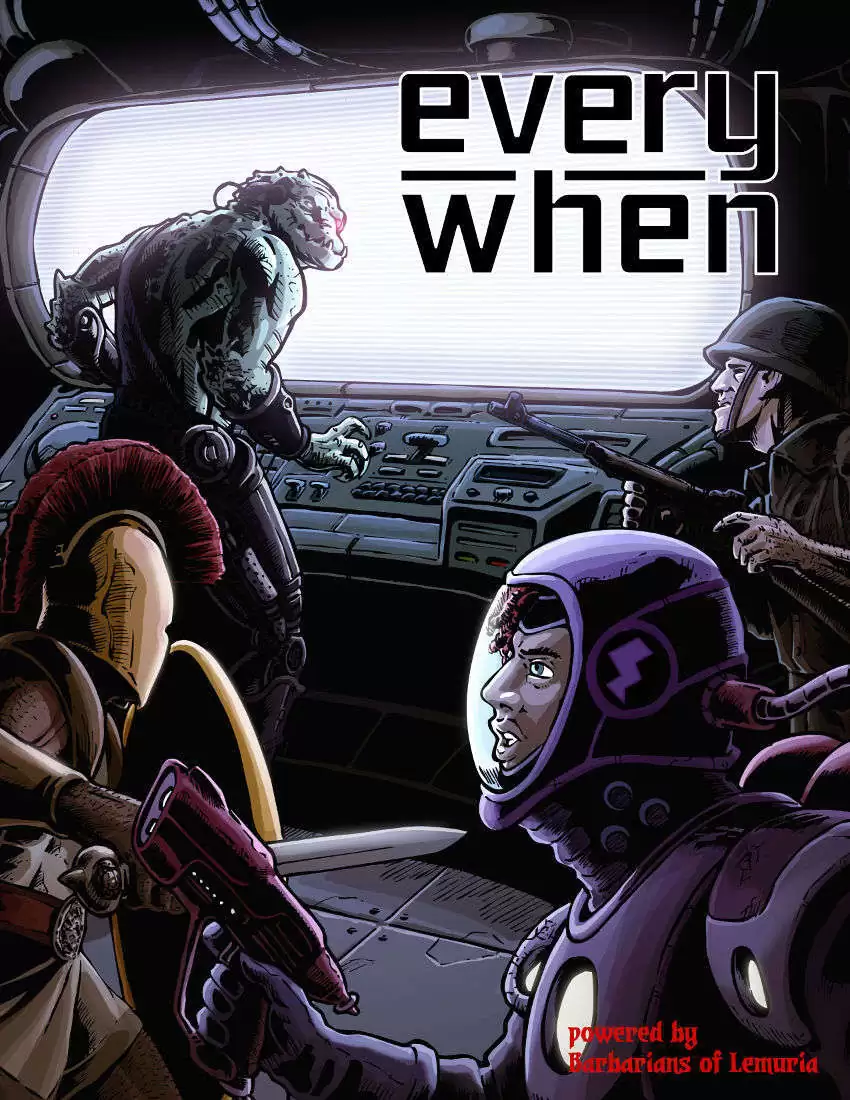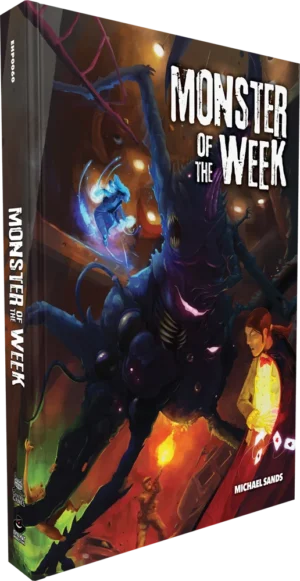Everywhen Fantasy; Science Fiction; Psychological; Narrative-Driven; Collaborative Worldbuilding; Exploration-Driven
Everywhen is a generic tabletop roleplaying game (RPG) built upon the foundation of Barbarians of Lemuria, designed to offer a versatile toolkit for Game Masters (GMs) to create campaigns across various genres. It distinguishes itself through its streamlined character creation, involved conflict mechanics, and modular design, aiming for a balance between simplicity and depth. Everywhen emphasizes ease of use and adaptability, making it suitable for both novice GMs and experienced players looking for a system that can handle diverse settings without complex rules overhead.
Theme and Setting Versatility
Everywhen is explicitly designed as a generic RPG, meaning it doesn't come pre-packaged with a specific setting. This makes it adaptable to various themes, including fantasy, science fiction, psychological thrillers, and narrative-driven collaborative worldbuilding. The core book does include mini-settings as examples, such as a swords and sorcery fantasy world and a modern-day setting involving supernatural creatures. The game's supplements further expand this versatility, introducing elements like cyberware for a cyberpunk setting or expanded psionics for science fiction themes.
Core Mechanics and Rules
The core mechanic revolves around rolling 2d6 and adding relevant attribute or career scores, which typically range from 0 to 3. This simplicity extends to character creation, which avoids being "front-loaded" with excessive complexity. Characters are defined by four core attributes, four combat attributes, and a list of Careers representing their past and present experiences.
Combat and other conflicts are resolved using a unified conflict mechanic. More complex scenarios, like vehicle chases or hacking attempts, utilize a "dramatic challenges" system, balancing challenge and penalty dice to represent risk and reward. The game employs a Lifeblood track to manage health, differentiating between fatigue, normal, and lasting damage, each with varying healing rates.
Unique Aspects of Everywhen
Everywhen stands out due to its balance between simplicity and depth. Unlike more complex systems like GURPS, Everywhen avoids overwhelming players with options during character creation. Compared to narrative-focused games like Fate, it provides more structured mechanics for conflict resolution. The absence of a traditional skill system is a unique design choice. Instead of a skill list, Careers reflect a character's history and capabilities.
The game's modularity also distinguishes it. GMs can easily adapt the system to different settings by modifying career lists and including or excluding specific boons and flaws. This makes it easier to create balanced games without needing to extensively rewrite the core rules.
Target Audience and Player Experience
Everywhen is targeted at both novice and experienced players and GMs. Its straightforward rules and adaptable framework make it accessible to those new to tabletop RPGs. Experienced GMs will appreciate the system's flexibility and ease of customization for creating unique settings and campaigns.
The player experience is designed to be collaborative and narrative-driven. The Careers system encourages players to develop rich backstories for their characters, while the unified conflict mechanic promotes engaging and dynamic gameplay. While the game provides tools for detailed combat, it also supports social conflicts and exploration, catering to different play styles.



